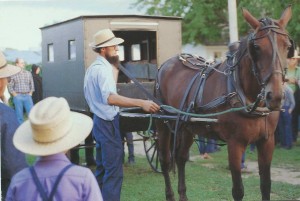I was reading about a pair of successful musicians who spoke about balancing the management of the business end of their bookings and keeping their songs and performances sharp and entertaining.
They used the quote  “Commerce comes second to craft” and it struck a chord with me. I can hear a chorus of agreement with those words when applied to almost any business. If you have a faulty product (your craft) then your commerce (profit) is not guaranteed. I bet it is a very popular quote to use at annual meetings and the like. Advertising agencies would really put a nice spotlight on their corporate clients with those words.
“Commerce comes second to craft” and it struck a chord with me. I can hear a chorus of agreement with those words when applied to almost any business. If you have a faulty product (your craft) then your commerce (profit) is not guaranteed. I bet it is a very popular quote to use at annual meetings and the like. Advertising agencies would really put a nice spotlight on their corporate clients with those words.
It is especially true in the field of judicial interpreting and translation. In order to take pride in your work we have to keep improving. But training is new to our field, it is not considered mandatory and is not always accessible. We have to test the self-imposed boundaries to self-discipline. We have to search for and make time for training opportunities.
And yet the ugly truth is that getting hired is not always contingent on a high level of skill in this business. We can find agencies and clients who will assign us a job based on our rate and availability and never ask about our training. And another fact is that they have no standard way to asses our skill level until we are actually working. This void is not found in a lot of industries where training starts with higher education and then is part and parcel of the career path. That is the standard most industries look to when they measure a professional skill. So let’s rise to that expectation. Show high respect for colleagues who pursue training. And consider the high value of the agency or client that asks for your credentials and tests you. They are holding you to a higher standard.
But in a market that does not recognize our craft as a discipline, craft comes second to commerce. There is more focus on how much we will charge than on our qualifications or earned certifications. The concept that some bilingual lawyers or legal staff have that they can gauge our interpreting skill defies the foundation of our craft.
We have to find a balance. I suggest we hold true to placing craft over commerce even if other colleagues, agencies or clients don’t. I also suggest organizing your promotional material be it your website or professional media presence with concrete details that support your actual skills. List training, conferences, earned certifications (State or National licenses and/or professional organizations) and tests passed. This will give the client a standard to measure you by. And your craft will be what they remember you for and the commerce will be a good result of your effort.